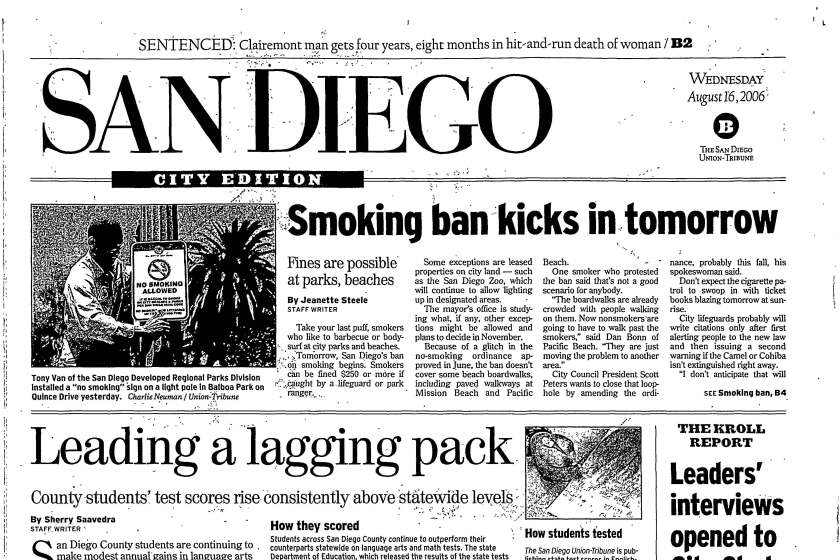Bill would allow troops and vets to avoid conviction on DUI offenses
A bill in the Legislature would make it easier for U.S. military troops and veterans to get a break on misdemeanor DUI offenses by completing a diversion program designed to help people whose service has left them emotionally damaged.
Advocates said this update to a broader diversion program for active-duty service members and vets would provide treatment sooner for eligible individuals who had driven under the influence of alcohol, drugs and other substances.
Critics, including the San Diego County District Attorney’s Office, said it could jeopardize safety by creating a revolving door for DUI violators.
The legislation, Senate Bill 725, easily passed through the Assembly public safety committee on Tuesday morning after having gained unanimous support in the Senate. The full Assembly could vote on the legislation as early as this week.
The issue of DUI diversion has grown into a debate that includes a sitting San Diego judge, the state’s district attorneys and veterans advocates — people who usually run in the same circles.
The roots of this conflict go back to 2014. That’s when California officials created a diversion program that allows a select group of active-duty troops veterans to avoid conviction by agreeing to supervised treatment.
To qualify, veterans must have been diagnosed with post-traumatic stress disorder, traumatic brain injury, military sexual trauma or other conditions on a short list of service-connected issues.
Welcome to The Intel, a blog examining the hot military news of the day
This diversion program is distinct from its older cousin, the veterans treatment court.
San Diego County’s Veterans Treatment Court started in 2011, when there were six others in the state. The concept has been increasingly adopted nationwide, in recognition that thousands of U.S. troops are coming home from the battlefields of Iraq and Afghanistan with emotional wounds that might lead to bad decisions.
In veterans treatment court, qualified candidates are found guilty but their convictions are then dismissed if they complete a counseling program. That program often consists of two to three years of supervised care that includes some residential treatment. Basically, participants do their time in treatment instead of jail.
The San Diego County vet-court program had 21 graduates in the past 18 months. Roughly a third of its cases involved DUIs.
The recidivism rate is about 20 percent, said Harrison Kennedy, a deputy district attorney in this region who is attached to the program. That’s considered a success statistic because the recidivism rate in the general jail population is about 70 percent.
In 2014, legislators decided that battle-rattled veterans living in California deserve a break earlier in the judicial process. The lawmakers established the revamped diversion program, which enables qualifying participants to undergo treatment without entering a guilty plea.
This diversion program was intended to reduce court and jail costs and help enrollees avoid the consequences of a conviction. If the violators were still on active duty at the time of the incident in question, going through the diversion program could spare them military punishment that includes a less-than-honorable discharge.
At the time, DUI wasn’t directly mentioned in the legislation. As a result, courts around the state have made different determinations as to whether a person charged with a DUI can be eligible for diversion treatment.
The issue is now before the California Supreme Court.
Between January 2015 and February of this year, 171 defendants in San Diego County applied for military diversion for a variety of crimes. Of those, 137 applicants were accepted. About a quarter were on active duty. And 16 participants completed the program during that time.
The San Diego diversion program initially included a few DUI cases until the DA’s office appealed, an official said.
The question at hand is whether the revamped version of the program should explicitly cover DUI.
In the “yes” column are about 10 veterans organizations, including the California chapters of the American Legion and AMVETS, and the American Civil Liberties Union.
With regard to DUI, “We want to get those people into treatment as early as possible. We don’t want them going out jeopardizing future victims,” said Jude Litzenberger, executive director of the California Veterans Legal Task Force in San Diego.
“Everybody on both sides of this thing is pro public safety,” said Litzenberger, a retired Navy officer.
An influential voice in this controversy is San Diego County Superior Court Judge Roger Krauel, who testified in support of SB 725 on Tuesday in Sacramento.
Krauel, a retired Army officer, helped launch the San Diego region’s first veterans court. He now presides over the diversion program in El Cajon and testified on Tuesday that San Diego County has had no repeat offenders among its diversion graduates.
Military veterans can get into treatment as much as a year earlier in the no-conviction diversion program, compared to the post-conviction treatment court method, Krauel said in an interview with The San Diego Union-Tribune this week.
Diversion also can save a service member’s honorable duty status. If not, a veteran who had been kicked out of the military often loses financial and medical benefits from the U.S. Department of Veterans Affairs.
”Then we’ve lost a warrior who protects us,” Krauel said. “And he’d have trouble participating (in treatment) if he couldn’t get into the VA, because not too many folks who just lost their military job are going to have the money for private counseling.”
But the California District Attorneys Association, in addition to the San Diego County District Attorney’s Office, opposes expansion of the diversion program to include DUI cases.
“This creates potential for a dangerous cycle of diversion that jeopardizes the safety of our streets and highways,” the state association said in a letter.
Critics of SB 725 said the safer remedy is the post-conviction veterans treatment court. They cite anecdotal evidence of at least one DUI offender getting repeat passes in Santa Barbara County.
“With diversion, there is no guilty plea. There’s no conviction. There’s no limit to the amount of DUI offenses that one person can be diverted for,” said Kennedy of the San Diego District Attorney’s Office. “And there’s no statutory structure for treatment that guarantees we’ll get some type of effective treatment.”
Kennedy added that he has seen active-duty troops get convicted and go through the veterans court process, even with felony cases, and keep their military careers intact.
Meanwhile, Litzenberger and other backers of SB 725 said the diversion route contains safeguards against repeat DUI offenders.
A judge has to approve each application for diversion, they note. Also, the state Department of Motor Vehicles has a separate administrative process that can include revoking a driver’s license after a DUI. The DMV record follows you and wouldn’t be affected by the proposed bill, said backers of the measure.
“There will be no endless diversions,” said the bill’s author, State Sen. Hannah-Beth Jackson, a Democrat who represents Santa Barbara and Ventura.
The debate has ramifications for San Diego County, which is home to an estimated 38,000 veterans from the post-9/11 era. Of those, based on U.S. Department of Veterans Affairs research cited in a recent military justice report, as many as 6,700 may end up charged with a crime.
Military Videos

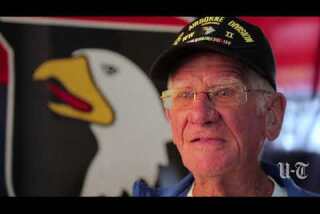
D-Day paratrooper from Coronado jumps again in France — at age 96
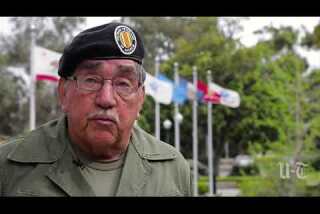
Remembering war's fallen, one name at a time

Video: Navy's newest vessel sails into San Diego and a new future in surface warfare

Video: U.S. Navy files homicide charges over warship collisions
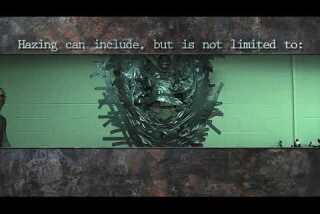
Stopping Marine hazing

Video: U.S. Navy Air Crew Grounded After Creating Vulgar Sky Drawing

Navy says Asia Pacific ship collisions were avoidable

Hundreds of recruits get sick at Marine boot camp
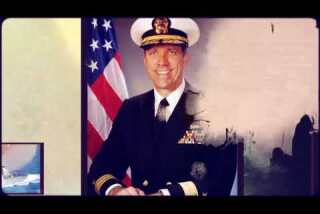
Cutler Dawson Talks Navy Federal

